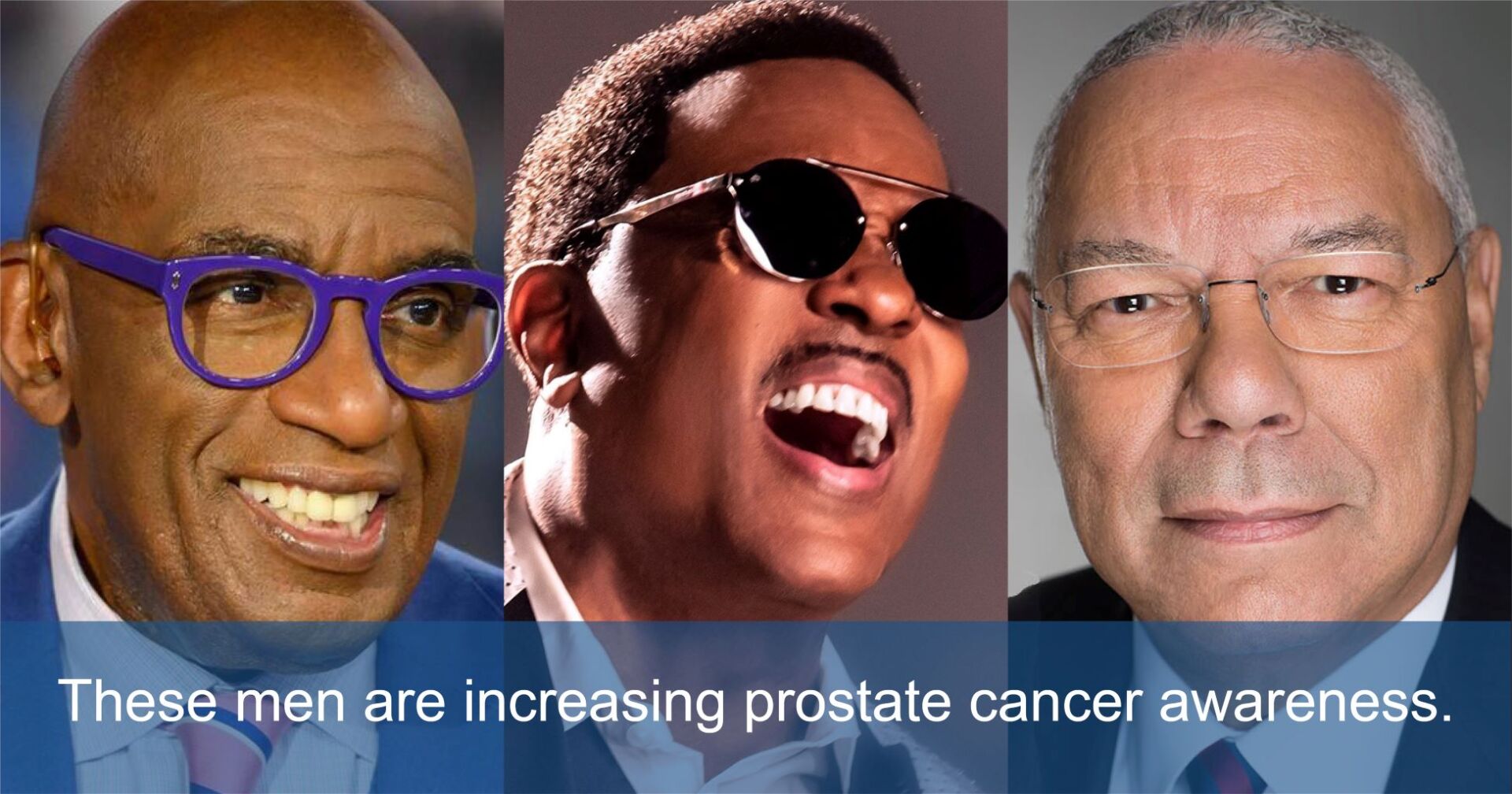
In the United States, approximately 1 in 8 men will be diagnosed with prostate cancer in their lifetime1. The risk of developing prostate cancer is greater in African American men, and they are more than twice as likely to die from the disease. African American men are at greater risk of being diagnosed with prostate cancer sooner in their lifetime, and of acquiring a more aggressive type of prostate cancer than white men1, 2.
Although the reason for this discrepancy is inconclusive, several factors can impact prostate cancer risk and outcomes. Some of these include racial bias to preventive care, poor access to treatment resources, when the cancer is diagnosed, how patients are treated after diagnosis, poor diet, lack of exercise and obesity2, 3.
While the incidence and mortality of prostate cancer is higher in black men, Al Rocker, Charlie Wilson, and Colin Powell have all shown that it’s possible to not only survive, but thrive after the disease. During black history month, we are putting the focus on these three well-known black men, who have not only battled and beaten prostate cancer, but who also continue to fight to raise awareness to the importance of early detection of the deadly disease.
Al Roker
This weather forecaster and morning TV co-host on The Today Show revealed back in November 2020 that he was diagnosed with Prostate Cancer. Since his diagnosis, Al has openly shared his journey, continued to talk about the importance of screening, and strived to make testing more available to African American men.
Charlie Wilson
This American singer, songwriter and record producer was diagnosed with Prostate Cancer back in 2008. Since being successfully treated, he has teamed up with the Prostate Cancer Foundation (PCF) as their official spokesperson to raise awareness to the disease, raise fund for scientific research and the development of new treatment, and encourage black men to get tested.
Colin Powell
After his diagnosis in 2003, the retired four-star general in the U.S. Army underwent surgery to remove a cancerous prostate gland that same year. Since then, Powell has brought attention to the issue of prostate cancer in African-American men, who are at higher risk of diagnosis and succumbing to prostate cancer.
Conclusion
The incidence and mortality rate of prostate cancer has evolved over the years. While the rates continue to remain the highest in African communities, recent trends show that the rate of prostate cancer mortality is decreasing. In order to keep this trend at a decline, it’s highly recommended that African American men or men with a family history of prostate cancer get screened at age 45. While there is no evidence yet on how to prevent prostate cancer, it is possible to lower your risk by limiting high-fat foods, increase intake of fruits and vegetables and performing regular exercise2.
This black history month, let us continue to promote awareness and early detection of prostate cancer, so that we may continue to reduce the morbidity and mortality of this disease in all men.
To learn more about prostate cancer screening, click here.
References:
- Cancer.org. (2021, February). About Prostate Cancer. Key Statistics for Prostate Cancer. Retrieved from: https://www.cancer.org/cancer/prostate-cancer/about/key-statistics.html
- Rawla et al. (2019). Epidemiology of Prostate Cancer. World Journal of Oncology. 2019;10(2):63-89. Retrieved: https://www.ncbi.nlm.nih.gov/pmc/articles/PMC6497009/
- Zero Cancer. (2021, February). African Americans and Prostate Cancer. Retrieved from: https://zerocancer.org/learn/about-prostate-cancer/risks/african-americans-prostate-cancer/
Feb 19, 2021 | Cole Parrish
 Find a Center
Find a Center Contact Us
Contact Us